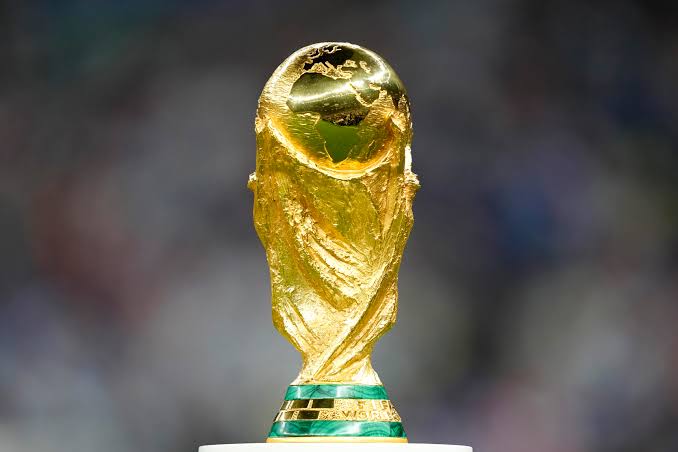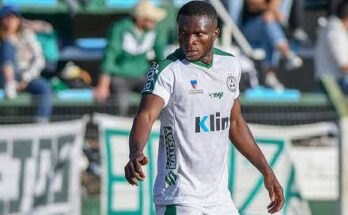World football governing body FIFA announced on Wednesday that matches for the 2030 World Cup will be held in six countries on three continents, Soccernet reports.
Spain, Portugal and Morocco will be the official hosts of the tournament, but the first three matches will be played in South American countries: Argentina, Paraguay and Uruguay.
This is to commemorate the 100th anniversary of the competition. The first edition of the World Cup will be held in Uruguay in 2030, and part of FIFA’s new plans are aimed at celebrating the 100th anniversary of the World Cup.
Uruguay will host the opening match of the tournament, while Argentina, who finished runner-up in the first round, will host the second match. Meanwhile, Paraguay will host the third match as it is CONMEBOL’s traditional home base.
This means that for the first time, Mundial will be held on three continents: Europe and Africa.
What Is The Significance Of The New WC Arrangement for Nigeria?
All six countries involved in hosting the World Cup automatically qualify. However, the Super Eagles still have to participate in the qualifiers.
The idea of hosting other world matches in Nigeria is not viable given the quality of stadiums across the country unless something dramatic happens in the near future.
Since Morocco is not nearby, it is not very useful economically. However, Morocco is an African country, so if the Super Eagles qualify and are allowed to play in Morocco, they can expect support from his team at home.
Nigeria’s first World Cup appearance was in 1994 in the United States, 64 years after the first World Cup. Super Eagles never impressed in Mundial with their best ever performance in USA 94 minutes, but Nigerian fans dare to dream.
Nigeria currently has many talented players who can conquer the world if they continue on this path.
World 2030 is still seven years away, and some players may have reached their peak by this point. Players like Victor Osimhen, Victor Boniface, Gift Orban, Akole Adams, Samuel Chukwueze and Taiwo Awoniyi were around 31-32nd at that point.
However, since the 2015 U17 World Cup, which produced stars like Chukwueze and Osimhen, no other U17 team has produced top-class talent, so how will this youth chain impact Nigeria? I don’t know yet whether I will give it.
What Can Happen Before 2030?
First of all, it is amazing that Morocco, an African country, is making great strides in the world of football, both on and off the pitch.
At the last World Cup in Qatar, Atlas Lions became the first African country to reach the semi-finals. Hosting the World Cup will also be a big step as it will be his second country in Africa to host the Mundial.
This is a big lesson for Nigeria’s football administrators and even the government. This shows that with proper planning and systems, miracles can happen.
The Nigeria Football Association has been the subject of ridicule, especially recently due to wage payment issues as seen during the Women’s World Cup in Australia/New Zealand.
If appropriate systems are in place, problems such as wage payments will never surface. We should work on this in our home league as well. Over-reliance on foreign-based leagues for the development and improvement of Nigerian players will ultimately not be enough.
Some former world champions have great leagues, such as Argentina, France, and Spain.
A good example of this is the fact that none of the 20 clubs in the Nigeria Professional Football League can produce a goalkeeper who can comfortably put Francis Uzoho on the bench. In the last African Cup of Nations, the Super Eagles failed to win the championship due to the lack of a good goalkeeper.
A functioning league ensures a proper production chain, allowing young players to rise through the ranks and ultimately achieve greatness.
When appointing a coach, constant communication is necessary. The fact that the NFF remains under the jurisdiction of the Ministry of Sports is worth considering. To make matters worse, the head of the sports ministry is a person with no significant experience in sports. It’s hard to imagine where visionary planning comes from.
There is still a long way to go until 2030, but there is still much to be done in Nigerian football in the meantime. While countries such as Morocco and South Africa have made great strides, Nigeria has taken baby steps and sometimes even setbacks. Last week, Morocco defeated Nigeria to secure the right to host AFCON in 2025. This week it’s their turn to co-host his 2030 World Cup.
We hope that Morocco’s recent success will be the catalyst for the revival of Nigerian football.



